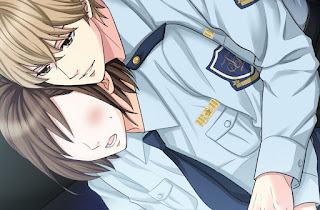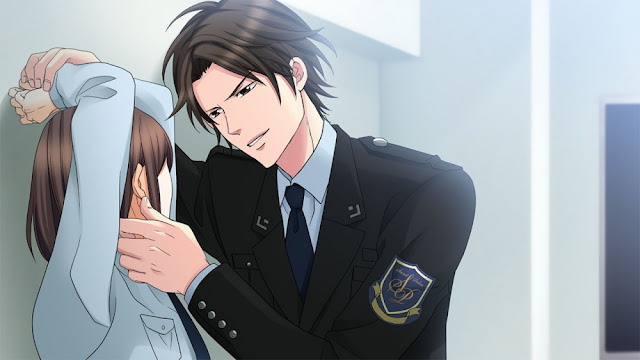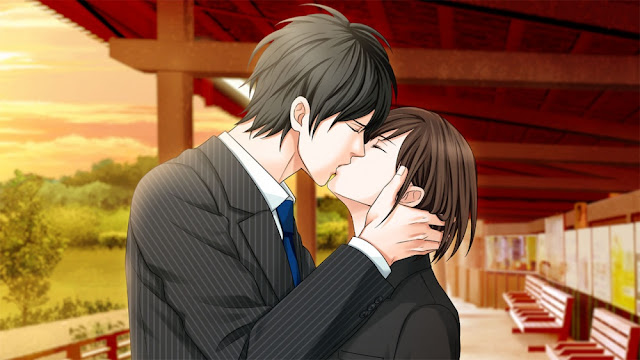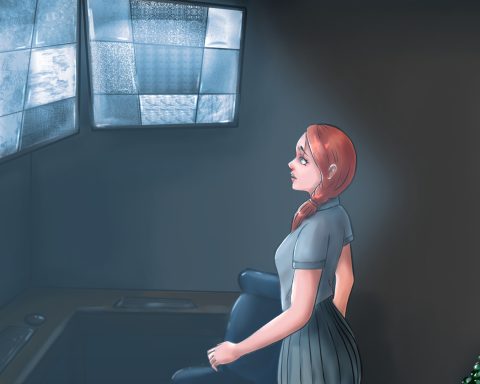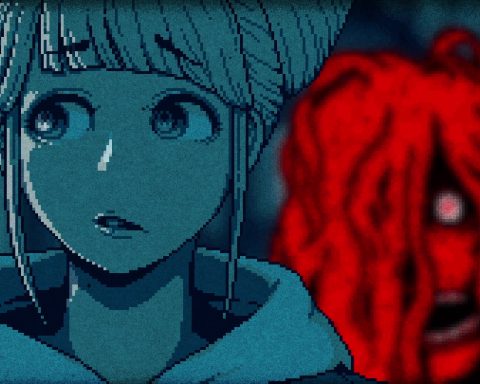Japanese game developer and publisher, Voltage, is certainly prolific. Since 2011 the otome specialist has published multiple titles per year, and as many as 11(!) in one particular year (2014). Her Love In The Force is one of those 2014 titles, which has been localised and dropped on the Nintendo Switch recently, and it’s… fine, I guess. You’ll need to be a real otome fan to get much out of it, but I’m sure it’ll have some fans out there.
My big problem with Her Love In The Force is that it’s all about the police and not entirely comfortably so. You play as just one of two new women recruits to an elite police academy, and not only are the love interests all male instructors, but many of the key scenes involving them are uncomfortable plays on power, which the game never makes an effort to subvert. What’s more, right at the start you discover that women are so uncommon in this academy that there’s not even a change room for them and they need to shower in the same shower block as the men, and being a woman in this environment is not something the men are overly sensitive to. In the context of this review I’m not going to be ACAB about this; the Japanese have a different relationship to their police forces (it’s not that they see them as heroes, but the dynamic is nowhere near as hostile as in some other places in the world), and Her Love in the Force is very much a product of Japan. However, because this is a police story the power dynamics between the love interests and your protagonist as much more sensitive, and the game doesn’t do anywhere near enough to resolve that discomfort.
The really big problem is that because of that, it also becomes much harder to find any of the male characters to be endearing. By their nature otome games rely on you finding the male characters engaging – as silly as it sounds while fanservicey visual novels made for men often get away with giving a vapid, annoying girl big boobs – otome games really are about the characterisation, and Her Love in the Force struggles with this. I didn’t find any of the male characters particularly inspiring or fun. Most of them were some degree of sadist or another in the way they treat the protagonist (this is a school that very much believes in trial by fire), and while, yes, all of them have another side that you can eventually learn about, by the time you get there you’re going to have to work hard to shake the impression that they’re all totally unlikable. Contrast this to an otome like Hakuouki, in which you’re held captive by the militant Shinsengumi and threatened with death, and yet those boys are oh-so-charming about it, so you get pulled deep into their web anyway. Her Love in the Force can’t even Stockholm Syndrome you into liking this group. And again, that would be fine if there was subversion at play and the men are meant to be unlikable as some criticism of the police or something, but that’s just not the case here.
Structurally, Her Love in the Force is standard stuff. You pick a boy to tag along with, and then for the next however many hours you follow the story of their developing relationship. Every so often you’ll have a couple of decisions to make, and if you guess the right one, your boy will like you more. It’s often a guess, since the characterisation is weak enough that it can be difficult to tell how they will react to each option, but that’s why the game gives you lots of save files. At the end of each chapter, you’ll get a little odometer pop up and, depending on the decisions that you’ve made, it will swing towards “happy ending”. This is a nice touch since, with many other games in the genre, it can be hard to tell if you’re going to end up with the romance ending until right at the end, but with this one you get a sense of that as you go along.
Once you’ve finished one narrative, you can head back to the start and start with a different boy. I do prefer when the narrative is better integrated, and you can interact with all the characters in a fluid story, rather than methodically work through each love option as though they belong to separate visual novels, but this approach must have its fans, since it’s a structure that is basically copy/pasted across a number of different otome publishers, so it’s obviously working.
However, while the game might be structurally sound, and localised competently enough, the other big problem that Her Love in the Force has is that it’s just very mundane on the eyes. Yes, it’s a six-year-old game at this point, but the upper echelons of otome visual novels are gorgeous bits of art and comparing this to something like Piofiore: Fated Memories or Hakuoki (a 2010 game, so even older than this) is a big step down. The character models during the narrative sections are simple and completely lacking in the kind of animation or expression. That’s not the end of the world in itself – games like Nurse Love Addiction still make that work – but the CGs are also quick efforts, and they’re meant to be the highlight in a game like this.
Her Love in the Force is fine. If you’re comfortable with the themes, then there’s a lot of raw content to work through, and if you do find the boys appealing then you’ll get to spend a lot of time with them. On the other hand, there’s nothing inspiring about what Her Love in the Force offers, it’s not a particularly attractive game on the eye, and the narrative really struggles to make these men interesting enough to want to romance. You know an otome game is in trouble when you don’t have a favourite boy, and perhaps Her Love in the Force should have been left back in 2014.

